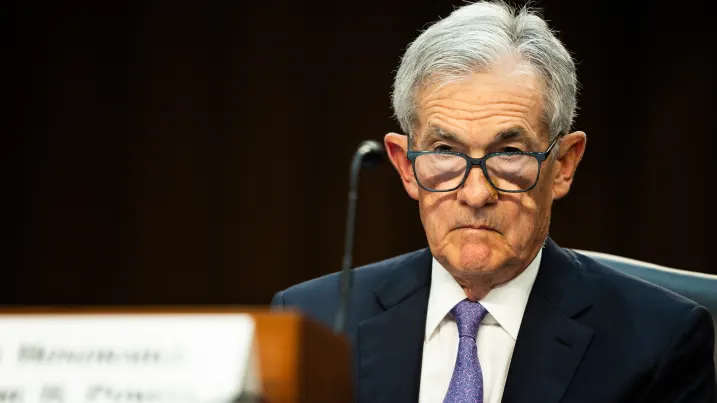Fed Chair Jerome Powell Warns of Risks to Economic Growth from Prolonged High Interest Rates
Federal Reserve Chair Jerome Powell raised concerns on Tuesday about the potential negative impact of maintaining high interest rates for an extended period on economic growth. His comments, made during appearances on Capitol Hill, underscore the delicate balance the Fed must strike between curbing inflation and supporting economic activity.
The Risk of Prolonged High Rates
In his remarks, Powell highlighted the dangers of keeping interest rates elevated for too long. “Reducing policy restraint too late or too little could unduly weaken economic activity and employment,” he stated. This warning reflects the ongoing challenge the Federal Reserve faces as it navigates the current economic landscape, characterized by persistent inflationary pressures and the need to sustain economic momentum.
Balancing Inflation Control and Economic Growth
The Federal Reserve’s primary tool for controlling inflation is the manipulation of interest rates. By raising rates, the Fed aims to cool down economic activity and reduce price pressures. However, excessively high rates can also stifle growth by making borrowing more expensive for consumers and businesses, leading to reduced spending and investment. Powell’s remarks indicate a cautious approach, acknowledging the potential adverse effects of prolonged high rates on the broader economy.
Recent Rate Hikes
Over the past year, the Federal Reserve has implemented a series of rate hikes in response to surging inflation. These measures were deemed necessary to bring inflation closer to the Fed’s target of 2%. While these actions have shown some success in tempering inflation, they have also raised concerns about the potential for a slowdown in economic growth and an increase in unemployment.
Economic Indicators and Fed Strategy
Powell’s comments come at a time when economic indicators present a mixed picture. While inflation has moderated somewhat, it remains above the Fed’s target, necessitating continued vigilance. At the same time, the labor market has shown resilience, with low unemployment rates and robust job creation. This complex economic environment requires the Federal Reserve to carefully calibrate its policy responses to avoid tipping the economy into a recession.
The Fed’s Dual Mandate
The Federal Reserve operates under a dual mandate: to promote maximum employment and to ensure price stability. Achieving these objectives simultaneously can be challenging, especially in the current economic context. Powell’s acknowledgment of the risks associated with prolonged high rates reflects an understanding of the need to balance these dual goals carefully.
Congressional Testimony
During his appearances on Capitol Hill, Powell faced questions from lawmakers about the Fed’s strategy and the potential impacts of its policies on ordinary Americans. Concerns about the affordability of borrowing, the housing market, and overall economic stability were prominent themes. Powell reassured lawmakers that the Fed remains committed to its dual mandate and is closely monitoring economic developments to inform its policy decisions.
Future Policy Directions
Looking ahead, the Federal Reserve will likely continue to assess a wide range of economic data to determine the appropriate path for interest rates. Powell’s comments suggest a readiness to adjust policy as needed to avoid jeopardizing economic growth while still addressing inflationary pressures. This adaptive approach will be crucial in navigating the uncertain economic terrain.
Conclusion
Federal Reserve Chair Jerome Powell’s warning about the risks of maintaining high interest rates for too long underscores the complex challenge of balancing inflation control with economic growth. As the Fed continues to navigate this delicate balance, its decisions will have significant implications for the broader economy. Powell’s testimony on Capitol Hill highlights the importance of a measured approach to monetary policy, aiming to sustain economic activity while keeping inflation in check. The Federal Reserve’s actions in the coming months will be closely watched as it strives to fulfill its dual mandate in a dynamic and evolving economic landscape.

